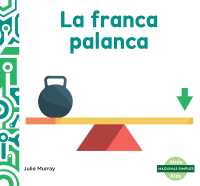- ホーム
- > 洋書
- > 英文書
- > Politics / International Relations
Full Description
How professionalization and scholarly "rigor" made social scientists increasingly irrelevant to US national security policy
To mobilize America's intellectual resources to meet the security challenges of the post-9/11 world, US Secretary of Defense Robert M. Gates observed that "we must again embrace eggheads and ideas." But the gap between national security policymakers and international relations scholars has become a chasm.
In Cult of the Irrelevant, Michael Desch traces the history of the relationship between the Beltway and the Ivory Tower from World War I to the present day. Recounting key Golden Age academic strategists such as Thomas Schelling and Walt Rostow, Desch's narrative shows that social science research became most oriented toward practical problem-solving during times of war and that scholars returned to less relevant work during peacetime. Social science disciplines like political science rewarded work that was methodologically sophisticated over scholarship that engaged with the messy realities of national security policy, and academic culture increasingly turned away from the job of solving real-world problems.
In the name of scientific objectivity, academics today frequently engage only in basic research that they hope will somehow trickle down to policymakers. Drawing on the lessons of this history as well as a unique survey of current and former national security policymakers, Desch offers concrete recommendations for scholars who want to shape government work. The result is a rich intellectual history and an essential wake-up call to a field that has lost its way.






